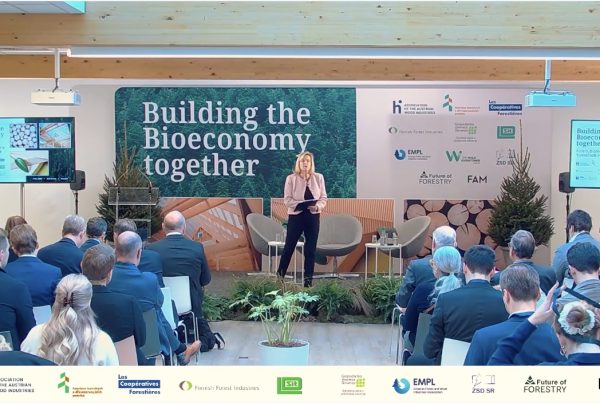In an era where global markets demand agility, resilience, and sustainability, wood-based industries are carving out a compelling competitive advantage. Imagine entire city skylines, skyscrapers, brought to life with engineered timber; imagine batteries, windows, textiles, even satellite components, all crafted from renewable wood and its by‑products. These innovations go far beyond novelty, they signal a powerful shift in the competitive landscape, where natural materials outmatch carbon-intensive alternatives.
What it would mean to fundamentally transform climate impact by replacing resource-heavy materials – like cement, steel, petroleum-based plastics, adhesives, and synthetic fibers, with forest-derived alternatives? Europe’s forest industry could lead the shift to a low-carbon, high-value economy.
Already today, forest raw materials and their residues are outperforming fossil-based equivalents: wood-based packaging replaces plastics, timber replaces concrete in construction, and bio-based fuels reduce reliance on oil. Behind the scenes, cutting-edge research is unlocking even greater potential – developing products that not only lower costs and carbon emissions but also reinforce Europe’s supply chain independence and strategic autonomy.
In short, modern forestry does more than serve the environment, it drives competitive growth. By harnessing bio‑economic innovation, sustainably managed forests are positioning Europe at the forefront of a circular, carbon-smart industrial transformation.
Read more about the innovations made of wood here.




